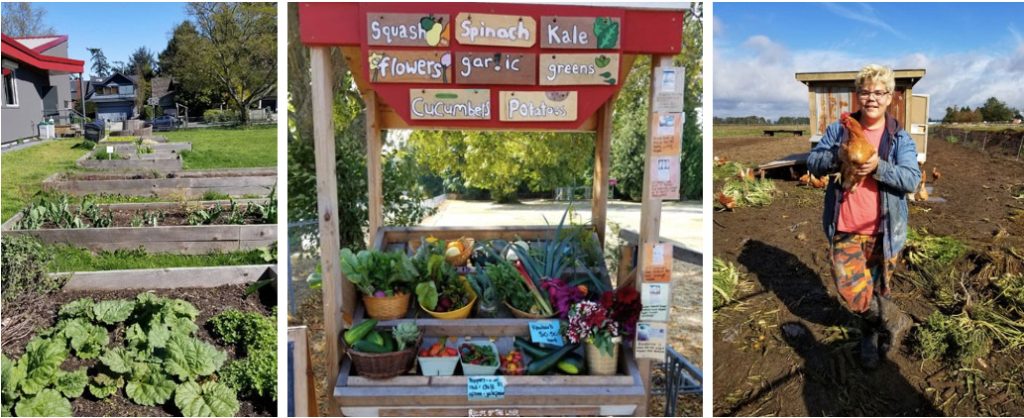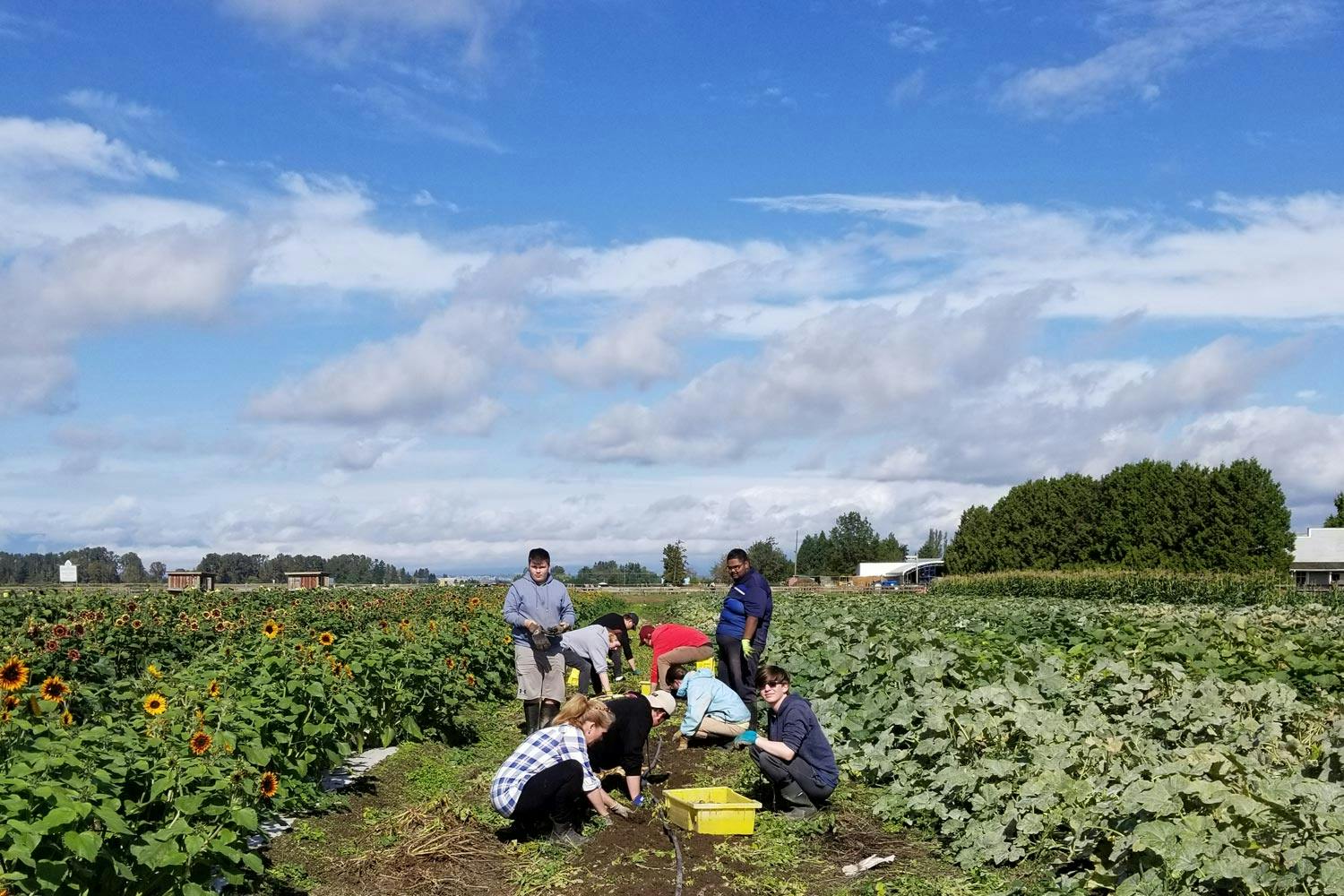When School is on the Farm
How a creative high school connects teens with their local food system.
Students from Farm Roots Mini School in Delta, BC, help out in the fields at Schoolhouse Farm, also in Delta.
In the midst of a suburban neighbourhood hides an agricultural oasis: bees buzz, raised beds overflow with herbs, greens, and rhubarb; fields brim with rows of garlic, potatoes, melons, tomatoes, peppers, cucumbers, beets, and squash. It’s not uncommon to find farms in the Vancouver, BC, suburb of Delta — about a quarter of which is zoned for agricultural use — but this isn’t your standard Delta farm. Here at Farm Roots Mini School, the farmers are teens and their teachers, and the fields, beds, and beehives are one giant classroom.
For two dozen students, the school provides an opportunity to learn about agriculture in a hands-on way — from managing a small orchard of a couple dozen trees to starting seeds, planting crops, and weeding. The program is run by the Delta School District on 3 hectares of land a few blocks away from the waters of Boundary Bay, within several hundred metres of the US border.
“It’s different than a typical classroom. It’s very open. We have a different schedule but we’re still getting all of our academics in a unique way,” says Denzel Chand, a grade 12 student in his second year of the program. He plans to pursue post-secondary studies in agriculture and business — an area he wasn’t aware of before attending the school.
His career goals have been shaped by the curriculum at Farm Roots, where students connect not only to the land, but also the food system. The curriculum exposes students to agricultural careers and teaches them how to produce their own food.
It’s an approach to education with the potential to fill gaps in the agricultural sector. According to the last agricultural census, farming is an aging field, with the average Canadian farmer aged 55 years old. In 2011, less than half of farmers (48%) were over 50. Five years later, that percentage was up to 55%. Although, the percentage of farmers under the age of 35 increased from 8% to 9% in that time. (The middle bracket of farmers aged 35 to 54 decreased from 45% to 36%.) Even in agricultural communities like Delta, some people worry that youth are growing disconnected from the production of their food.
“There was something definitely missing in the bricks-and-mortar aspect of our schools,” said Paige Hansen, the district vice principal of special programs with the Delta School District. “And farming was a sort of a way to connect, away from the industrial school model, and actually connect to the community that had been built on agriculture.”
Even in agricultural communities, people worry that youth are disconnected from the production of their food.
Farm Roots Mini School is open to students from Grade 10 to 12, from both within and outside Delta. Students spend half their time at the mini-school — where courses include environmental sciences, entrepreneurship, land and food systems, and English — and half of their time at their regular home high schools. Now in its fourth year, the program has grown from eight to 24 students.
According to Cody Forbes, a teacher and coordinator for the school, the coursework incorporates agriculture and farming as much as possible. For example, in chemistry class, students learn about common chemicals used in agriculture and their environmental impact. The students also learn from local experts and visit agricultural facilities — such as dairy farms and greenhouses — that can’t be offered on site.

L-R: Raised beds line the south side of the Farm Roots school building; student-farmed produce on sale at the school’s farm stand; a Farm Roots student gets a handle on chicken farming during a visit to Schoolhouse Farm.
“What we can’t learn about firsthand on our farm, we have the very generous community within Delta that allows us to go into their space and do a little bit of learning there as well,” said Forbes.
Their school days all look different, depending on the time of year. In the winter, students spend more time inside the classroom. In the spring, there is more outdoor work, including starting seeds, planting crops, weeding, watering, tending to the bees, and caring for trees in the orchard. The program reflects the range of crops and animal production in BC, allowing the students to learn about the diversity of the province’s agricultural industry firsthand.
“When more kids are engaged in hands-on learning, such as food systems and gardening and farming, they’re learning a really useful skill,” Hansen adds. “Particularly in light of this latest pandemic, the idea of having food security and knowing how to plant your own food is more relevant than ever.”
Many Farm Roots students have been able to continue outdoor work on the farm since the Covid-19 pandemic began, and the school is going ahead with six weeks of student programming this summer. However, because of the ongoing need for physical distancing, the program will go on hiatus for the 2020–21 school year.
